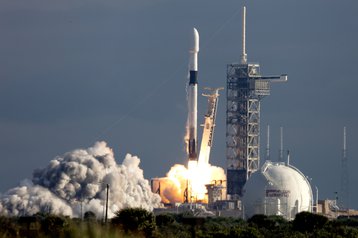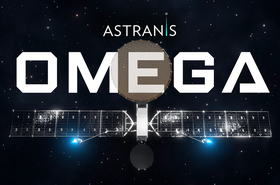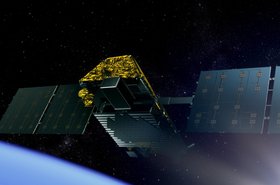Satellite operator Telesat has contracted 14 SpaceX rocket launches for its Lightspeed Low Earth Orbit (LEO) network.
The Falcon 9 launches will begin in 2026 with the aim of providing a global broadband service to enterprises from late 2027. Each rocket will be carrying up to 18 Telesat Lightspeed satellites.
“With growing demand for high-speed Internet around the world, SpaceX is proud to launch and deploy Telesat’s Lightspeed constellation,” SpaceX president and COO Gwynne Shotwell said.
“Building upon our successful launch partnership to date, we look forward to flying Telesat once again as they expand connectivity capabilities for their customers across the globe.”
Dan Goldberg, Telesat’s president and CEO, added: “SpaceX has been a trusted and effective launch provider to Telesat on our geostationary satellite programs and I am delighted that they will be supporting us with their highly reliable Falcon 9 rocket to deploy the Telesat Lightspeed constellation, the most ambitious program in Telesat’s 54-year history."
Supply chain issues pushed Lightspeed back from its 2023 launch date and caused the company to drop the number of satellites from 298 to 198. That date was also later than the original launch date of 2020 after delays in choosing a contractor.
Telesat is following OneWeb in turning to rival SpaceX to launch its LEO Internet satellites. Amazon, on the other hand, chose virtually every other launch provider than SpaceX, which led to an investor lawsuit earlier this month over claims that Jeff Bezos' rivalry with Elon Musk was behind its decision to ignore SpaceX.




